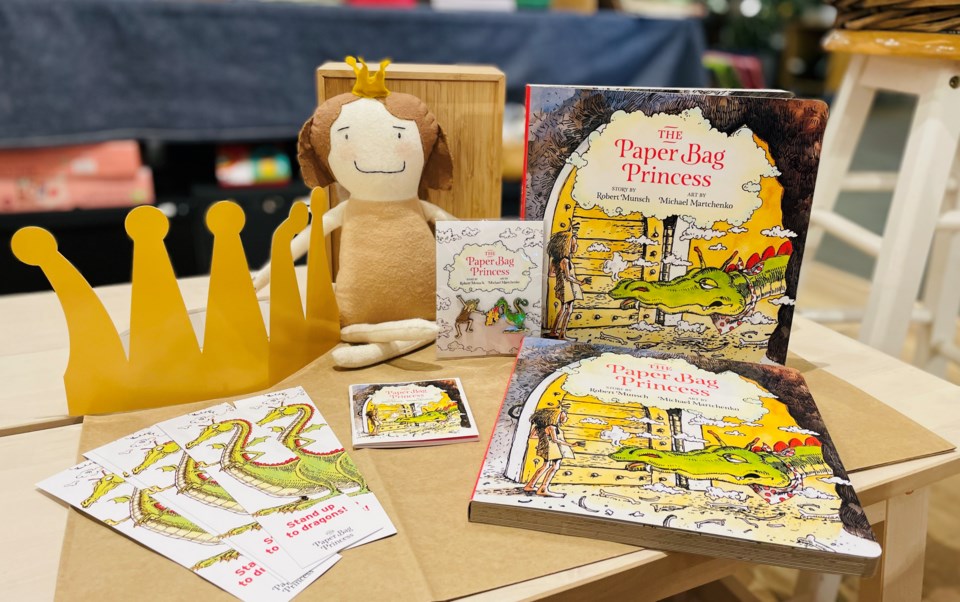Years before Wonder Woman or Moana became part of pop culture, there was another brave woman — a princess dressed in a paper bag.
Her name was Elizabeth, and she saved her prince from a fire-breathing dragon. Elizabeth showed that it didn't always have to be a prince saving a princess (like in Rapunzel, Snow White or Cinderella); and that it’s all right to dump someone who acts like a “bum.”
The feisty character in Robert Munsch's 1980-published children’s book the Paper Bag Princess had the world divided — she resonated with a few, empowered a few, and angered a few others.
Now, the character and the tale are celebrated in bookstores across the country annually on Paper Bag Princess Day (an event founded by the book's publisher Annick Press) on March 4, as per Anne Uebbing, owner of New West-based children's bookstore Kinder Books.
And in the last four decades, it has sold more than seven million copies.
But why is the book such a big deal?
Caught in controversies
As per Uebbing, the story goes like this: Princess Elizabeth is about to marry Prince Ronald when a dragon destroys their castle and kidnaps the prince. Everything is burned, and the princess is only left with a paper bag that she puts on and goes out to find her prince.
She goes through a lot of trouble with the dragon to get the prince back. “But when she finally gets to the prince, the snobby prince says, ‘You don't look like a princess anymore. You're not dressed properly; your hair's not done.’ She says in response, ‘Well, you might look nice, but you are a 'bum.'”
“And they don’t get married after all.”
The narrative was different from other fairy tales — "it was way ahead of its time," said Uebbing. It was, in fact, a subject of “controversy and censorship over the years,” wrote Uebbing in an Instagram post.
“Despite its status as a beloved classic, the Paper Bag Princess has been banned in some schools and libraries due to its portrayal of gender roles and the use of the word ‘bum,'” the post read. “Some parents and educators have argued that the book is inappropriate for young children, and have called for its removal from school curriculum and libraries.”
Promoting gender equality
But while it was considered “anti family” by some, “many others have defended the book’s importance and value as a tool for promoting gender equality and critical thinking,” she wrote.
“By depicting a strong and independent princess who defies traditional gender roles and expectations, the Paper Bag Princess encourages children to question societal norms and to develop their own sense of identity and self-worth.”
Books like these, she added, “challenge the status quo and promote critical thinking and empowerment for all.”
Banning and censoring such books limit exposure to new ideas, and threaten the right to freedom of expression, Uebbing's Instagram post read.
Instead, she called for people to embrace its important message on "gender roles and self-confidence."
And more importantly, "to support the freedom to read and access diverse perspectives.”
Join the Paper Bag Princess Day event, sponsored by the Arts Council of New Westminster, with storytime and crafts at Kinder Books (810 Quayside Dr.) on March 4. Those interested can register for either a session at 11 a.m. or 1 p.m. Participants will get to take home free giveaways from Annick Press.




